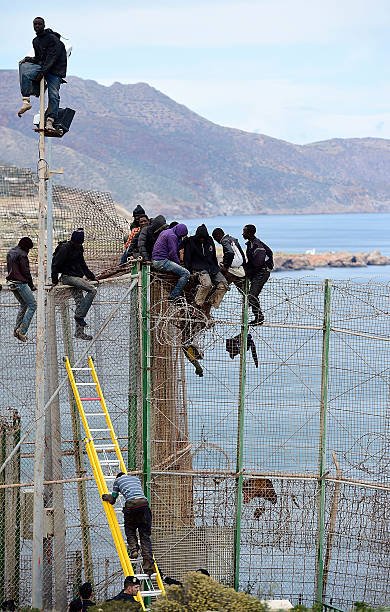The Spanish enclaves of Ceuta and Melilla are Europe’s frontline in a relentless battle against illegal migration and the chaos it threatens to unleash on the continent. Nestled on the northern coast of Morocco, these two territories serve not just as symbols of Spanish sovereignty but as critical barriers protecting Europe from a wave of unauthorised entry by economic migrants and opportunists seeking to exploit European generosity.
Fortress Europe Must Stand Firm
For decades, these enclaves have been targeted by thousands of migrants, many of whom resort to violence to breach the heavily fortified borders. Equipped with makeshift weapons, they often clash with Spanish security forces in their desperate bid to force their way into Europe. In the face of this aggression, the reinforced fences, razor wire, and vigilant patrols are not excesses but necessities.
Spain has every right—and duty—to safeguard its territory and its citizens. These measures are not just about protecting a few square kilometres of Spanish soil; they are about defending the integrity of the European Union’s external border. A breach here is a breach for all of Europe.
Hostile Actions Demand Resolute Responses
The migrants attempting to storm the fences are not mere victims of circumstance; many act with calculated hostility. Large-scale, coordinated attempts to breach the borders have involved mobs armed with sticks, stones, and even acid, aimed at Spanish border guards. Such actions demonstrate a wilful disregard for law and order and a willingness to harm those tasked with upholding it.
Far from being entitled to entry, these individuals are undermining the very asylum systems that exist to protect those genuinely fleeing war and persecution. The fact that most come from stable countries, driven by economic motives rather than legitimate need, exposes the hollow pretexts behind their actions.
Europe Cannot Absorb Everyone
The harsh reality is that Europe cannot absorb every individual seeking a better life. The continent faces its own economic and social challenges, from housing crises to strained welfare systems, and must prioritise the wellbeing of its own citizens. The enclaves of Ceuta and Melilla act as the first line of defence against this unsustainable influx, ensuring that Europe retains control over who enters its borders.
Morocco’s Role and Responsibility
Morocco, too, must step up its efforts. As a sovereign nation, it is responsible for ensuring order within its own borders and preventing hostile groups from approaching Spanish territory. Spain’s collaboration with Morocco has yielded some results, but more stringent measures and increased cooperation are needed to ensure that these border regions do not descend into lawlessness.
A Justifiable Stand
The criticism often levelled at Spain for its tough border policies misses the point. This is not a matter of turning away helpless refugees but of repelling aggressive, illegal incursions that threaten the security and stability of the region. Spain’s actions in Ceuta and Melilla are not just justifiable—they are essential.
Europe must remain vigilant and unyielding. The enclaves are not just Spanish territory; they are bastions of order and law in a world increasingly defined by chaos. If we compromise on their defence, we compromise on the principles that uphold our civilisation.
Footnote: If Spain can enforce and protect a land border with Africa, why can’t Britain enforce a 22-mile moat? It’s a question of willpower, sovereignty, and the resolve to protect national interests.
Stan Robinson reporting from the border of Spain and Morocco











